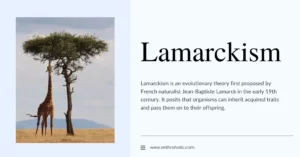AI Answer Evaluation Platform Live Now. Try Free Answer Evaluation Now
Economics vs Economic Anthropology
The analysis of human behaviour regarding production, consumption, distribution, and exchange constitutes an essential part of our understanding of societies. This has been the subject of both economics and economic anthropology, two separate but interrelated disciplines. While economics primarily employs mathematical models and statistics to decipher trends and predict outcomes, economic anthropology relies on an ethnographic approach, investigating cultures and societies to comprehend the underlying principles and implications of economic behaviour.

What is Economics?
Economics is a social science that analyses and describes the production, distribution, and consumption of goods and services. Its focal point revolves around:
- Understanding economic agents: Individuals, firms, governments.
- Exploring their interactions: Market dynamics, prices, wages.
- Examining outcomes: Economic growth, wealth and income distribution.
Economists tend to use mathematical models and statistical data to scrutinise economic behaviours and predict future trends [1].
What is Economic Anthropology?
Economic Anthropology, on the other hand, is a sub-field of anthropology that scrutinises how people in different cultures understand, manage and organise economic aspects of life. It delves into:
- The cultural context of economic activities: The role of traditions, values, and customs.
- The impact of social institutions: Kinship, gender, religion and their influence on economic activities.
- Examining cross-cultural differences: How economic activities and principles differ across societies [2].
Economic anthropologists primarily use ethnography, a research method that involves living among the people being studied, observing their activities, and engaging in their lives, to gain insights.
Comparison Between Economics and Economic Anthropology
| Factors | Economics | Economic Anthropology |
|---|---|---|
| Main Focus | Economic systems and markets; Predicting economic behaviour | Cultural understanding of economic systems; Contextualising economic behaviour |
| Methodology | Mathematical models and statistical data | Ethnographic fieldwork |
| Interdisciplinary Application | Relatively limited, mostly to finance, business, and policy studies | Extensive, covering sociology, archaeology, history, and cultural studies |
The Convergence of the Two Disciplines
Despite their differences in approach, economics and economic anthropology have been converging in recent years. Both disciplines increasingly acknowledge the significance of the other’s perspectives in forming a more comprehensive understanding of the economy.
- Behavioural economics: This subfield of economics acknowledges that people do not always act rationally and are influenced by a variety of factors, a concept long explored by anthropologists. It has seen significant growth and recognition in recent times, with Richard Thaler winning the 2017 Nobel Prize in economics for his contributions to the field [3].
- Economic anthropology’s embrace of quantification: While the qualitative approach remains predominant, some economic anthropologists are increasingly employing quantitative methods, recognising the benefits of statistical analysis in revealing patterns and trends [4].
Conclusion: Bridging the Gap
In conclusion, economics and economic anthropology offer valuable perspectives on economic phenomena. Economics provides a generalisable, model-driven approach to studying economic activities and predicting behaviour. Meanwhile, economic anthropology offers a contextual understanding of economic actions, grounding economic behaviours within their specific cultural, social, and historical contexts. Together, they form a comprehensive toolbox for analysing and understanding the complexities of human economic behaviour.
By recognising the value in each other’s methods and findings, the two disciplines can collaborate to provide a more holistic understanding of economic activities and systems, making this a promising direction for future research.
References
- Mankiw, N. G. (2014). Principles of Economics. South-Western, Cengage Learning.
- Carrier, J. G. (2012). A Handbook of Economic Anthropology. Edward Elgar Publishing.
- Thaler, R. (2015). Misbehaving: The Making of Behavioral Economics. W.W. Norton & Company.
- Bandelj, N., & Sowers, E. (2010). Economy and State: A Sociological Perspective. Polity.




